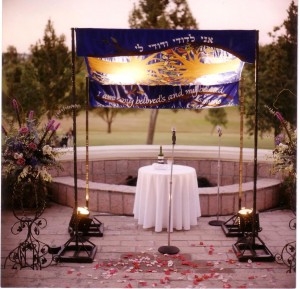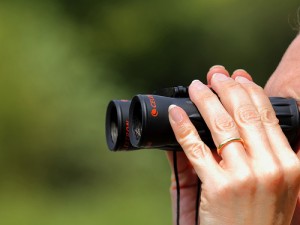What are you Looking for in Your Relationship?
By Sara Esther Crispe: February 25, 2014: Category Inspirations, Networks of Meaning
 It sounds innocent enough. “So what are you looking for?” The typical question asked to anyone interested in a relationship. And the response is a list of qualities of that ideal partner. For some it may be quite superficial. A guy who is at least 6 feet tall. A woman who is a size 2 with blond hair. Maybe the focus is about money: Someone rich. Someone who owns their own company. Some people may focus on shared hobbies: I want someone who loves to hike, travel, exercise, read, play video games…And then there are the personality attributes that hint at a deeper dimension: Someone with a good sense of humor. Someone kind. Someone caring. Someone passionate.
It sounds innocent enough. “So what are you looking for?” The typical question asked to anyone interested in a relationship. And the response is a list of qualities of that ideal partner. For some it may be quite superficial. A guy who is at least 6 feet tall. A woman who is a size 2 with blond hair. Maybe the focus is about money: Someone rich. Someone who owns their own company. Some people may focus on shared hobbies: I want someone who loves to hike, travel, exercise, read, play video games…And then there are the personality attributes that hint at a deeper dimension: Someone with a good sense of humor. Someone kind. Someone caring. Someone passionate.
But here is the real issue.
How often do you hear someone describe what they want to give to a relationship rather than what they want to receive?
I get it. It is hard to describe the kind of person you are looking for by describing what you want to put into the relationship. If anything it might be too amorphous. But beyond whether or not we should answer the question as such, the real question is how we view the purpose of a relationship. Is it to give or is it to receive? Is one looking for a relationship to be able to share with another, provide for another, help another reach his or her potential, love another?
Ultimately one can only take or receive from a relationship what one is able and willing to put back into it. Otherwise the result will be a depletion of the other. If I expect you to give me 10 hours of your time but I am not giving you 10 hours of mine, then sooner or later you will recognize that you are better off not in the relationship than in it. And “time” can be replaced with emotions, money, effort, love, consideration, anything at all.
Ancient Jewish texts describe a very powerful question that used to be asked under the wedding canopy. The question sounds quite simple. Yet it is unbelievably profound. And perhaps if more people continued to ask themselves this question, not just at the start of a marriage but every single day throughout it, there would be a lot more successful relationships.
Ata matzah?
Ata motzeh?
Do you find?
Have you found?
That’s it. That’s everything.
So what is the story here? Both of these are statements made by King Solomon, referred to as the “wisest of all men” and yet, on a surface reading, they could not be more different. The first verse is very straightforward. In full it reads:
“Matzah isha, matzah tov…”: A man who has found a woman (one’s wife) has found good.”
Seems simple enough. If you’ve found your wife, then you’ve found a good situation.
But the next statement is quite concerning.
“Umotzeh ani mar mimavet et haisha…” “And I find my wife more bitter than death…”
Hmmm. Clearly if we are choosing between the two, no contest here.
So how is this possible? How could the same person, the “wisest of all men” have two statements about women that are so contradictory in nature?
Let’s go back to the beginning and reread. “One who has found a woman has found good…” There is a general principle in Jewish thought that we only find what we are looking for. In the Talmud (Megillah 6B) it explains that if someone says that he has looked and hasn’t found we shouldn’t believe him. Likewise if one says he has found and hasn’t looked, don’t believe him. The only one who should be believed is the one who has taken the time and effort to truly seek and then find.
Love doesn’t come easy. And even if we think we have found it without looking, we certainly won’t be keeping it. The process of seeking and finding is something that must be consistent and constant. And that requires the focus being on the other.
The word for “found” is in the past tense. This is a vital distinction to the second verse in which it is “find” which is the present tense. The idea of the past tense is the belief that our soulmate is not just someone who meets our needs and interests today but someone that we were created to connect and be with. If I believe that my partner is not just part of my present and future but part of my past even before I knew him, then we have something much more solid than the passing and changing feelings that can come and go.
More so, the numerical equivalent of the word for “found” in Hebrew is that of 131 which is equal to the word for “humility,” “anavah” to teach us that if we want to really find our soulmate, we must humble ourselves. Yet humility is an often misunderstood concept. Humility is not when we think less of ourselves in a relationship. Rather it is when we think of ourselves, less. When the focus and the effort is on the other, then what we will find is good.
The second verse therefore has the problem clearly laid out in the statement itself. Unlike the term “found” in the past, “find” is the present and is one of the greatest issues in relationships today. As long as I am happy, satisfied, interested, fulfilled, etc. then everything is fine. But the moment I get bored, annoyed or impatient I am off to look for something new.
We live in a fast-paced world where all our needs are met fairly instantaneously. We can reach someone through text or see them on Facetime, we email our documents and pick up our food in a drive through. And our relationships suffer from this mentality. People jump from relationship to relationship as the sparks and jumping flames that are present when one is in love or infatuated transfer into a calm, illuminating and warming fire that defines real love. Real love is simply not as exciting. Yet it is real. It is not the fast track, but the life track. Sparks quickly die out. A stable fire has the power to last. And yet all too many are willing to jump ship as soon as the excitement is not as intense.
What this really comes down to is not just one who is always looking in the present to feel fulfilled, but one who is looking in the wrong place all together. In our first statement, one is looking to find his wife. In this second statement the focus is quite a bit different.
“Umotzeh ani”…and I find myself! If you are wondering why that wasn’t the original translation you read, it is because a literal translation makes absolutely no sense without some interpretation.
Just before I used the common translation, “And I find my wife more bitter than death.” But in truth, that is not what the verse really says. Superficially it just doesn’t seem to make any sense when translated word by word. Yet it makes perfect sense. Here is a literal translation:
“And I find myself more bitter than death the woman (wife).”
Yeah, doesn’t really work. But that is the point. What is he looking for in this relationship? Himself! What can he get out of it? How will it benefit him? How will it meet his needs?
 And what is the end result…a situation more bitter than death. And his wife? Where does she fit in? She doesn’t. She isn’t even a grammatical part of the sentence because she isn’t at all the focus. Her needs, her happiness, her fulfillment is not what he is looking for because he is too busy looking after what he wants.
And what is the end result…a situation more bitter than death. And his wife? Where does she fit in? She doesn’t. She isn’t even a grammatical part of the sentence because she isn’t at all the focus. Her needs, her happiness, her fulfillment is not what he is looking for because he is too busy looking after what he wants.
This is why the question was posed under the marriage canopy. Before you enter into a relationship, we must question ourselves. Are we in this for what we can get out of it or what we can put into it. Is our goal and focus on our partners or on ourselves? What are we looking for and who are we looking for?
If our answer is the other, we will find “good” yet if our answer is ourselves, we will have eternal bitterness. After all, if we keep taking and taking we will deplete the other and an empty person is not someone anyone wants to be with.
People often reflect back on an ended marriage and say that things were so great in the beginning but then changed. It is possible, but more often than not, things were problematic from the get go because the focus was wrong. The word for wedding, “chatunah” has two words embedded within. “Chein” meaning balance and beauty, and “tohu” meaning chaos. Both are real possibilities. A wedding can lead to a life of love and beauty or chaos and bitterness. And to a great extent, it boils down to our focus, our goals, our attitude and what we are looking for.
What are you Looking for in Your Relationship?,













;)
;)
;)
;)
;)
;)
;)
;)
;)
;)
